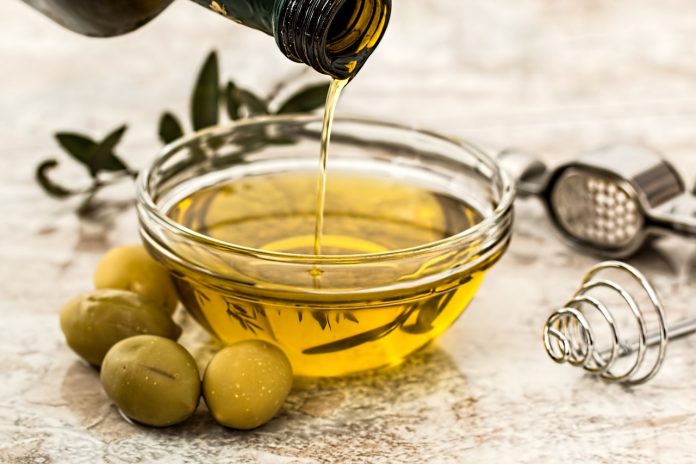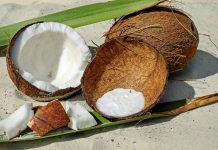
Healthy fats are unsaturated and come from vegetable sources (olive, peanut, Canola i.e. rapeseed, sunflower, safflower, soybean, corn), tree nuts, seeds, and avocados. Except for coconut oil, palm oil and macademia nuts are not as they are saturated fats. What that means is the fat carbon chain is saturated with hydrogen. This makes the fat solid at room temperature which is a way you can differentiate unhealthy saturated fats from healthy unsaturated fats which are liquid at room temperature.
The health benefits of healthy fats are that they do not contribute to heart disease like saturated fats which increase your risk of fatty deposits in your arteries which when narrowed are more likely to trigger a blood clot which leads to either a heart attack (on or near your heart) or stroke (in your head). An excess of even healthy fats could lead to weight gain so moderation is important.
You need a minimum of 1 teaspoon of healthy oil a day to prevent fatty acid deficiency assuming you have no other source of fat in the foods you eat. This would be rare as there is fat in all foods except fruit.
One particular healthy fat, omega 3, makes platelets less sticky. Platelets are involved in blood clotting so making them less sticky reduced the risk of high blood pressure or high triglycerides. The best sources of omega 3 fish oils are fatty fish like salmon, herring, and sardines. Plant sources for people who follow a vegetarian eating plan are ground flaxseed (linolenic fatty acids) which can be sprinkled on food or walnuts which can be made into omega 3 in your body. However, most of the research on the benefits of omega 3 is based on fish oils. Also, your body cannot make omega 3 fats so food is the only source. I would encourage you to eat 2 meals with fatty ocean fish (salmon, mackerel, tuna, sardines) each week. Most fats you eat are omega 6 fatty acids unfortunately.
You may want to read about the Mediterranean Diet as it includes olive oil and ocean fish. The Mediterranean Diet is associated with a lower risk of heart disease.
Since fats have more than twice the calories as carbohydrates or proteins, you would be wise to limit all fat in the foods you eat by choosing lean meats and low-fat or fat-free dairy. Healthy fats added to foods at meals could be any one of these: 1 teaspoon of healthy oil as salad dressing, mayonnaise or margarine made from one of the vegetable sources listed above, 2 tablespoons avocado, 10 olives, 6 tree nuts (almonds, cashews, pecans or walnuts), 2 tablespoons peanut butter, 4 teaspoons tahini (garbanzo beans & sesame butter), or 1 tablespoon of seeds (pumpkin, sesame) .



